The 2023 UK CEO Value Index - 10-Year Anniversary Edition
This is the 10th anniversary of the CEO Value Index – the CEO Value Index has been published annually since 2012, and aims to provide a unique insight into pay-for-performance.
Our database allows us to understand how Remuneration Committees invest in their top executives, and the lessons learned – on pay levels, and performance levels.
As a reminder: the CEO Value Index measures how much value a CEO adds to a company for every pound or dollar they are paid. The Index is a sophisticated methodology, but simple to understand. It can easily be applied by Remuneration Committees to their own decision-making.
Total Remuneration and Total Value Added are calculated over a four-year period. For the 2023 index, Total Remuneration takes the latest 4 year remuneration available. For Total Value Added the 2023 index looks at company data from June 2019 through to June 2023. (Note: The calculation only applies to those companies which have added value over the period).
Download The 2023 CEO Value Index
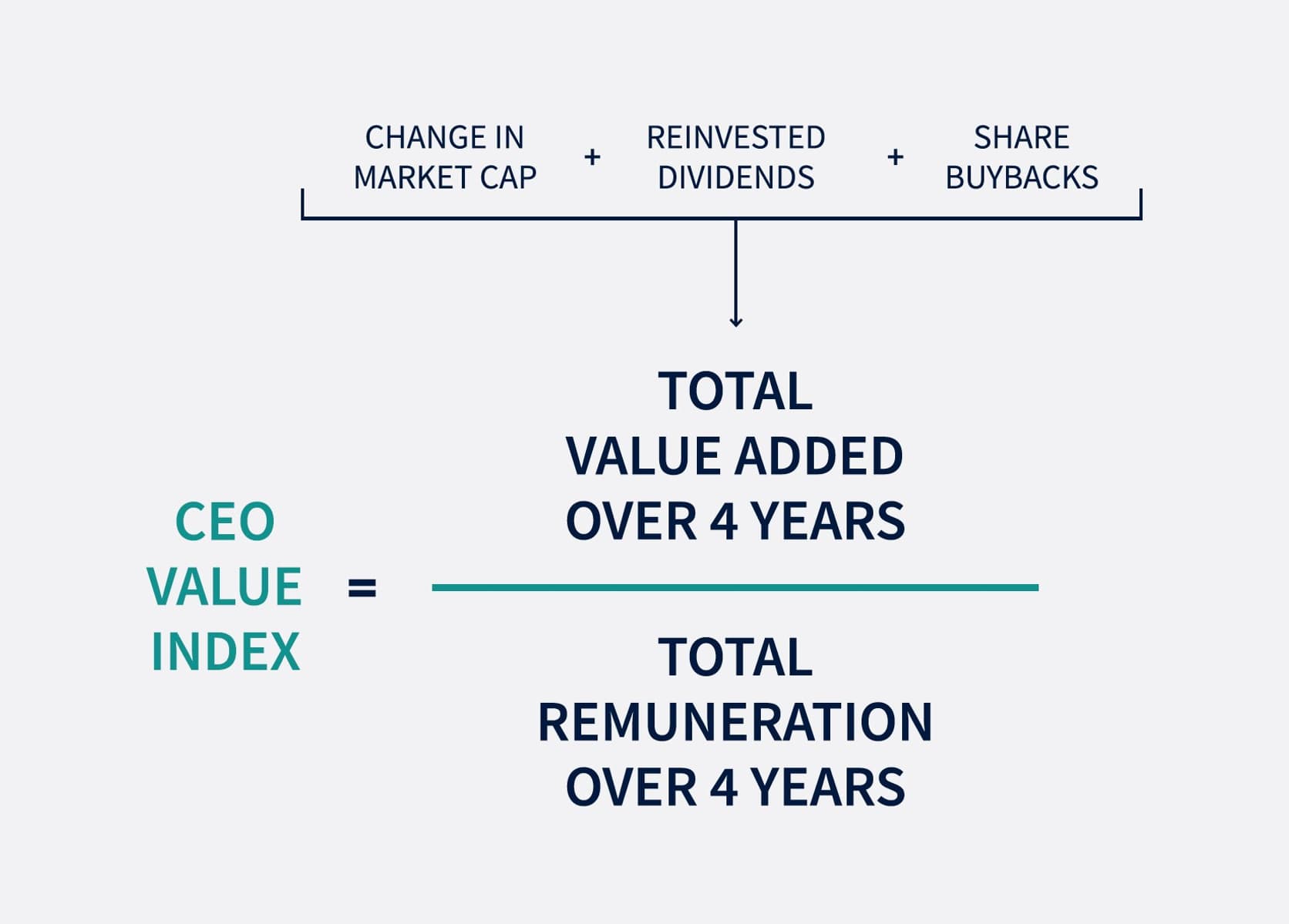
Over the following page we take a brief look at some of this year’s key findings. If you would like to learn more about the Index or request a tailored report for your company then please don’t hesitate to get in touch with us at info@remunerationassociates.com
How we calculate the CEO Value Index
Total Remuneration and Total Value Added are calculated over the four years from 2019 through to 2023. (Note: The calculation is applied only to those companies that have added value over the period). The exact time periods that define the Index are summarised in the table below:
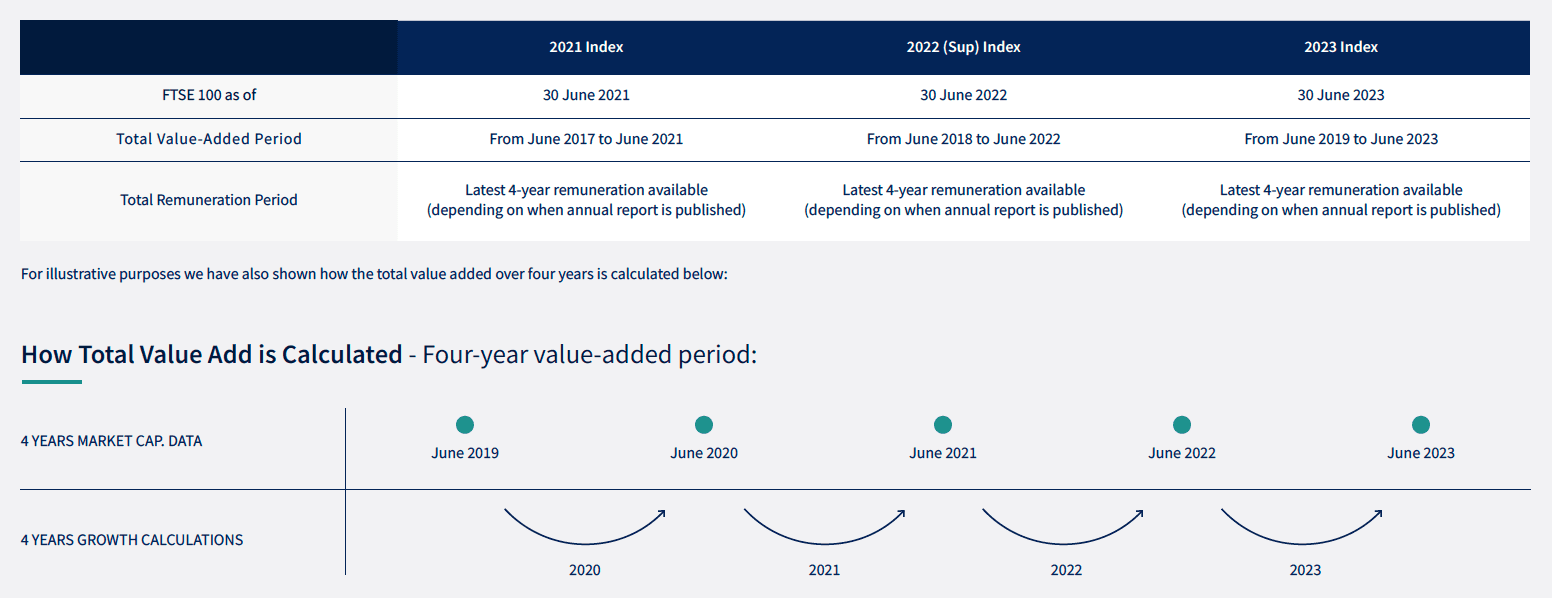
2023 CEO Value Index Top 10
The 2023 CEO Value Index reviewed the FTSE 100 companies as defined at 30th June 2023. Of those reviewed, 27% lost value over the period and 6% delivered more than £1,000 for every £1 paid to the CEO.
The following table shows the top performers of the 2023 Index period, i.e. the companies with the highest CEO Value Index, ‘the best value CEOs’.
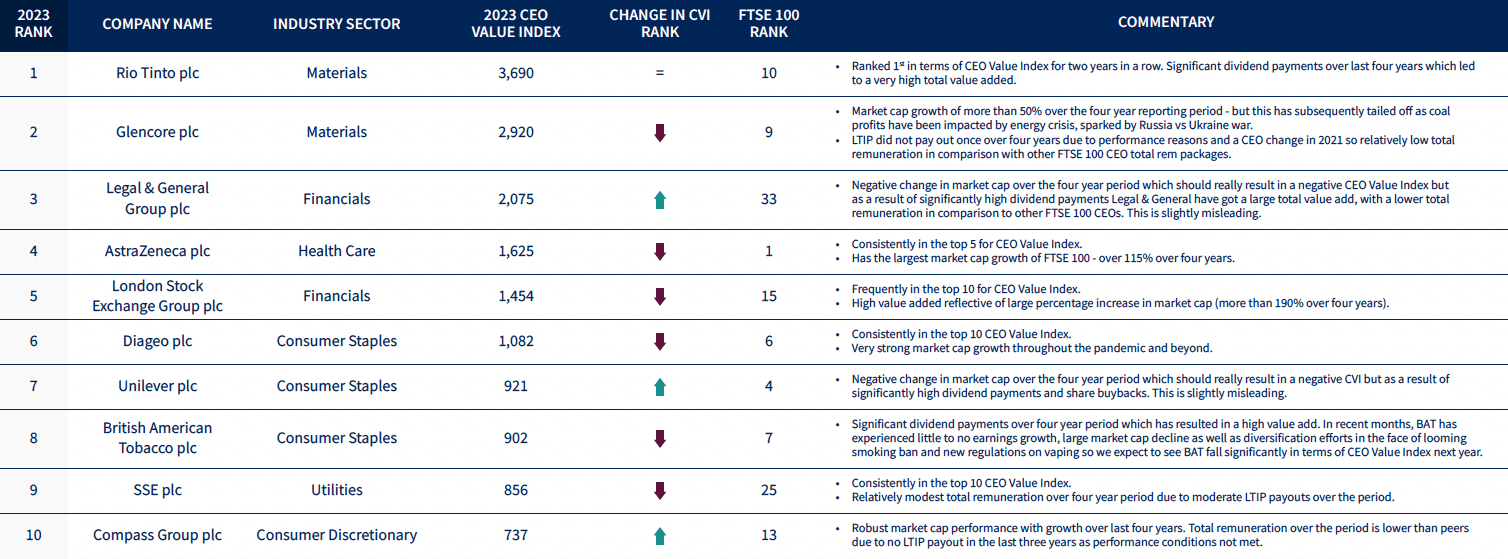
Overview of 2023 CEO Value Index by FTSE Rank
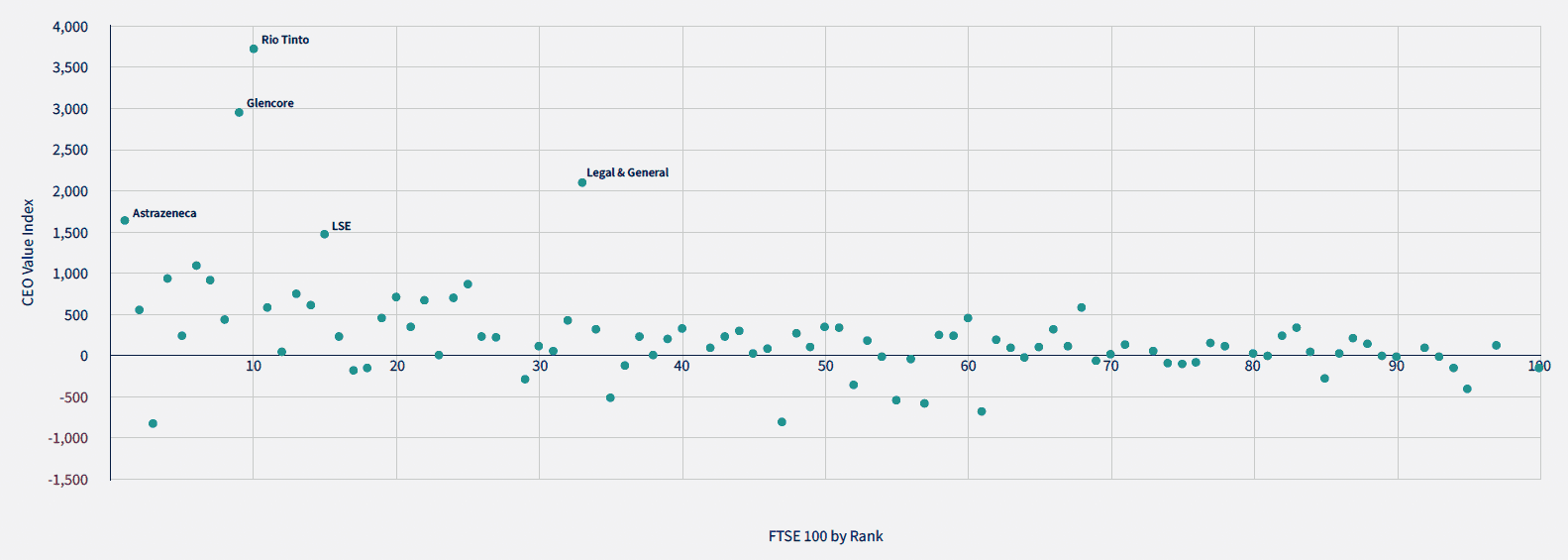
Top 10 appearances in the CVI over the last 10 years
Over the last 10 years, GlaxoSmithKline (‘GSK’) is the company which has appeared most in the CEO Value Index top 10 – featuring in top 10 in all but 2 years. This is followed by Rio Tinto, British American Tobacco (‘BAT’), Shell and AstraZeneca (‘AZ’).
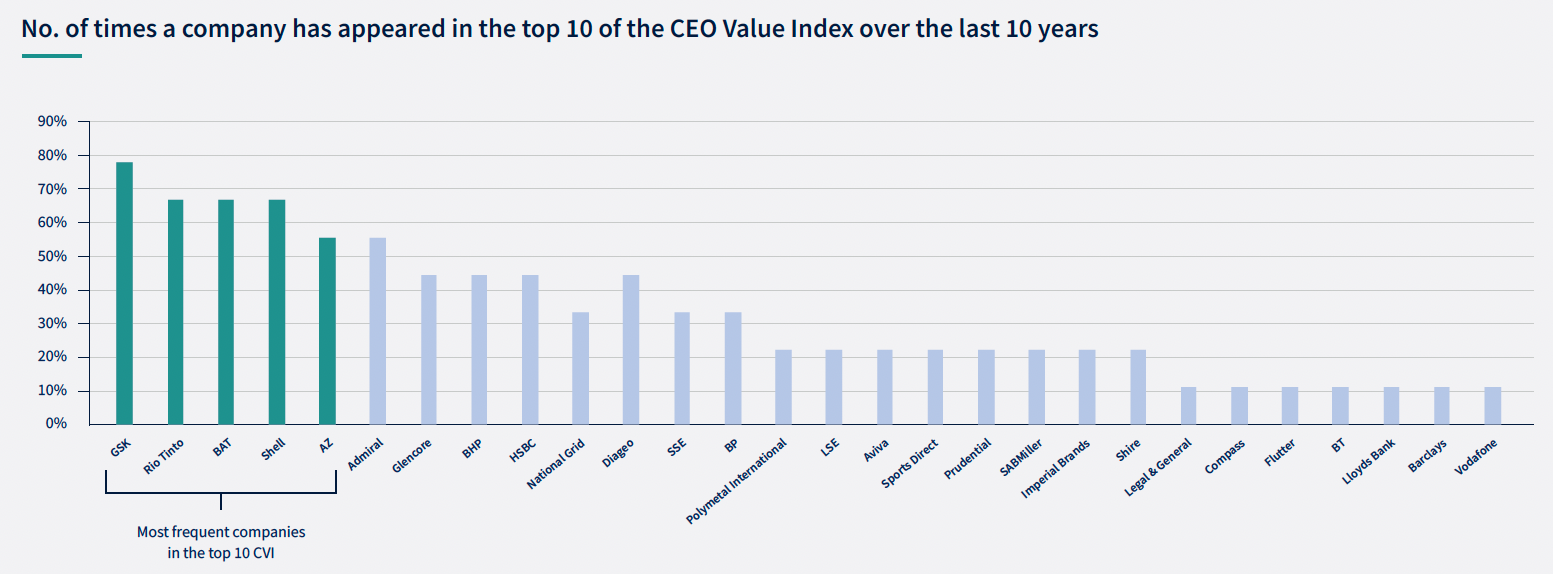
Eligibility for Inclusion and FTSE 100 Industry split
Not all listed companies are eligible for the CEO Value Index (see exclusion list below). 92% of FTSE 100 companies were included in the CEO Value Index calculation, and 27% had a negative Value Add. Therefore, a total of 65% of FTSE 100 companies were included in the CEO Value Index rankings and analysis. This is higher than previous years – in 2022 21% of companies had a negative value add, 25% in 2021 and only 17% in 2020 suggesting FTSE 100 company performance (in terms of total value added to shareholders) has decreased in the last 3 years.
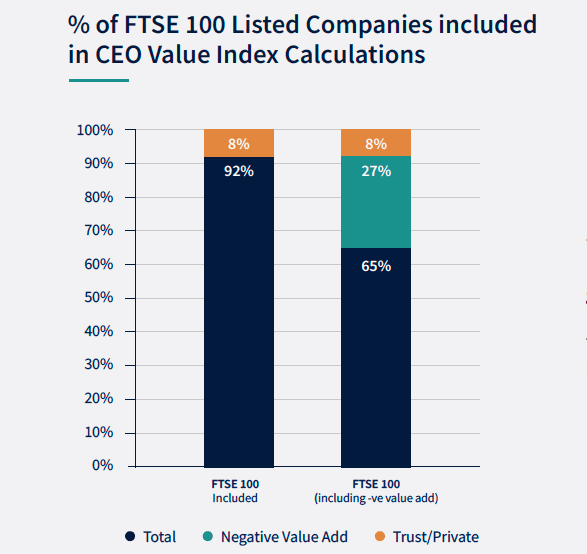
The graph shows the split of the FTSE 100 by industry to demonstrate which industries are most prevalent within the FTSE 100. The top industries represented within the FTSE 100 are Financials (21%), Consumer Discretionary (16%) and Industrials (15%).
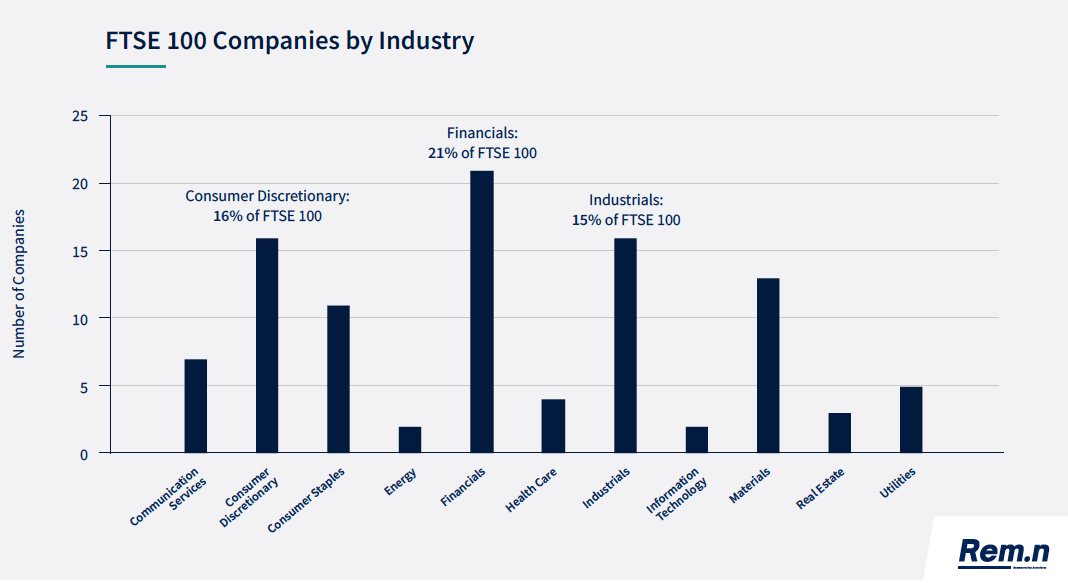
Remuneration + Total Value Add
Breakdown of 2023 CEO Value Index by FTSE Rank
Note that in order to achieve the highest CEO Value Index score, companies need to have added at least £20bn in terms of value added. For the companies in the top 10, this results in between £15m to £20m total remuneration over the last few years. There are of course outliers (such as Astrazeneca who are above both the value add and total rem mentioned above), but this is a ball park companies should aim for if they want to have a chance of being in the top 10 for the CEO Value Index.
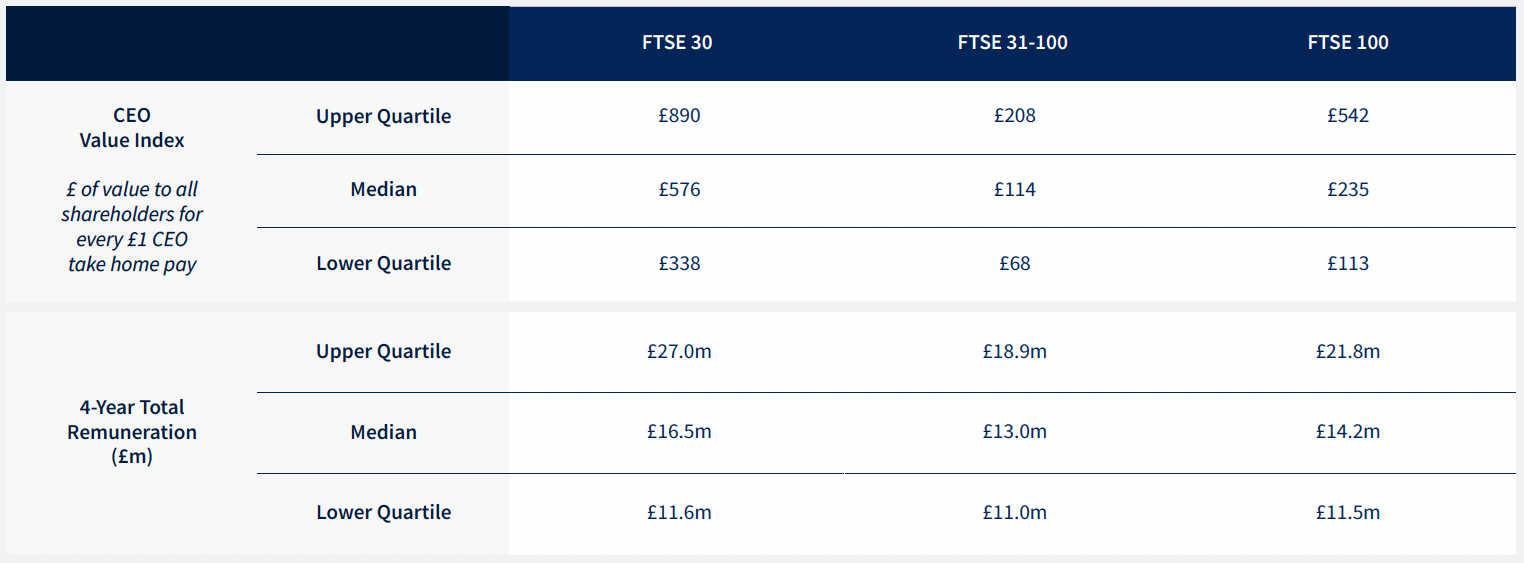
Summary of our findings
- The CEO Value Index has demonstrated remarkable consistency over the past 10 years
...with GSK featuring in the top 10 more than any other company. - The ratio between CEO pay and value delivered for top performing companies has fallen marginally from the levels observed in 2022
…however, mid-pack companies are largely aligned with the levels observed in 2022 - More FTSE 100 companies are delivering less value to shareholders at the median level in comparison with previous years
...and the collective performance of all, in terms of ‘value for money’, as shown by the Index – remains considerably below levels observed in 2016 and 2017
- Total Value Add is considerably higher among FTSE 30 constituents
...with Materials and Healthcare emerging once again as the highest value-added sectors.
- This year’s index shows strong pay-performance alignment in comparison with 2022 results – suggesting that company performance is
more aligned with a CEO’s pay
...AstraZeneca stands out, paying very high remuneration whilst delivering the most value added, suggesting justified CEO pay.
For detailed findings, download the full CEO Value Index here:
Download The 2023 CEO Value Index
